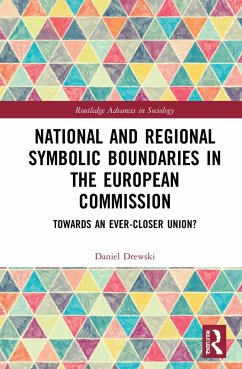
Immigrants and National Identity in Europe
Versandkostenfrei!
Versandfertig in 1-2 Wochen
221,99 €
inkl. MwSt.
Weitere Ausgaben:

PAYBACK Punkte
111 °P sammeln!
The author reviews main theories of nationalism and criticises their lack of elaboration on the role of 'Others' in nation formation. Drawing upon anthropological, sociological and social psychological perspectives, she develops a dynamic, relational perspective for the study of national theory.














